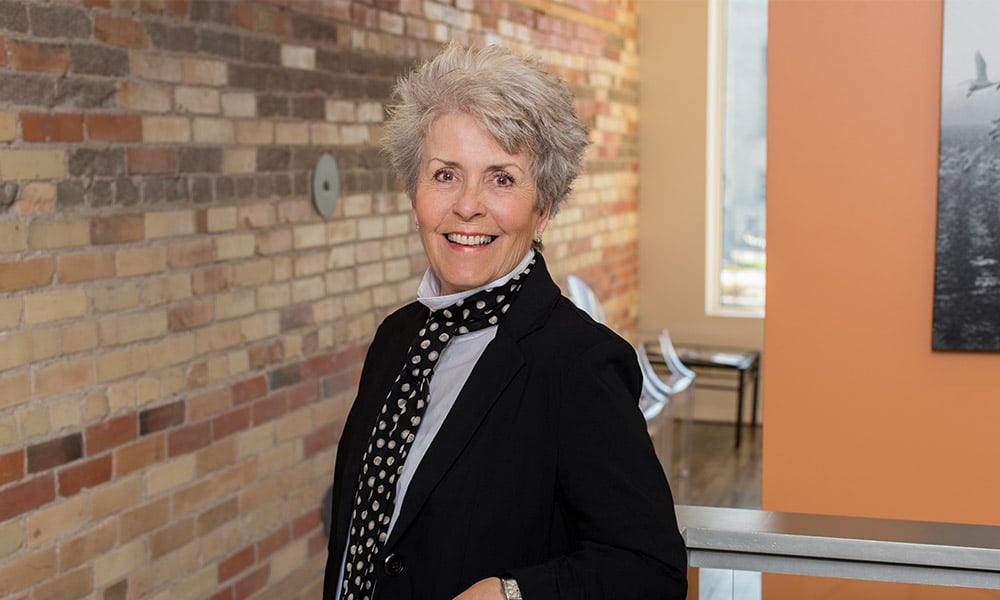
Law profession is becoming more global

The Law Society of Ontario’s human rights monitoring group is part of the regulator’s “duty to maintain and advance the cause of justice and the rule of law,” says former bencher Heather Ross.
That duty, from s.4.2[1] of the Law Society Act, is becoming important as more Ontario lawyers practice alongside their international counterparts, amid the globalization of the practice of law, says Ross, who was a member of Convocation when the group was approved in March 2006.
In 2018, the Law Society’s Equity and Indigenous Affairs Committee expanded the group’s mandate when it comes to human rights monitoring, allowing it to intervene in cases of non-lawyers who are “human rights defenders” and may play other roles in the justice system.
The work of the Equity and Indigenous Affairs Committee has come to the fore again more recently, with the election of a slate of benchers last year on the platform of eliminating an equity and diversity requirement called the Statement of Principles. Although the statement of principles has been repealed, the group recently posted a report on its website alleging that some of the law society’s past equity and diversity research was “driven by a particular political ideology, and was and is an unacceptable basis for serious policy-making by the Law Society, in particular the policy initiatives which are currently being implemented.” It’s unclear what, if any, policies may come under reconsideration when the benchers resume meeting later this month.
The human rights monitoring group now includes chair Teresa Donnelly, Paul Copeland, Julian Falconer, Marian Lippa, Judith Potter and Tanya Walker, and as of 2018 was “the only Canadian law society to have created a Human Rights Monitoring Group with a specific mandate to monitor human rights violations against members of the legal profession and judges, here and abroad, and to recommend interventions to Convocation.”
A February 2017 report, detailing the group’s work on more than 425 issues since 2006, noted that the LSO’s “commitment to access to justice issues is not limited solely to the province of Ontario; it extends to the international community.” Ross noted that in releasing its reports -- which often condemn violence against lawyers or judges and call for government action -- the LSO is in good company. For example, a recent lecture marking the International Day of the Endangered Lawyer 2020 was one of many similar events around the world. Indeed, the group’s February 2017 report says a goal of the group is to “explore the possibility of developing a network of organizations, and work collaboratively with them, to address human rights violations against judges and lawyers.”
In 150 human rights monitoring group responses released from September 2007 to December 2016, the LSO said most interventions centred on persecuted lawyers whose clients are “are often vulnerable individuals with very limited access to legal representation,” and cases involving judges who “often challenge corruption or advocate for the rule of law.”
“From time to time, the Law Society receives responses to its intervention efforts from human rights organisations, governments and lawyers/judges who are the subjects of the interventions,” says the report. “Numerous lawyers from foreign countries have noted that public interventions from organisations such as the Law Society are helpful in informing the community that human rights violations of lawyers and judges do not go unnoticed.”
When expanding the human rights monitoring group’s mandate in 2018, benchers listed some of the responses from foreighn authorities and bar associations: In the case of Judge Maria Lourdes Afiuni, the LSO’s public statement was released in newspapers in Venezuela and read on television and the judge expressed her gratitude; disbarred lawyers in Myanmar were reinstated to the practice of law and thanked the international community and the LSO; and the LSO has also been thanked by lawyers from Iran, Malaysia, Saudi Arabia, Uganda, Nigeria and Sri Lanka.
“Furthermore, numerous lawyers from foreign countries have noted that public interventions from organizations such as the Law Society are helpful in informing the community that human rights violations of lawyers and judges do not go unnoticed,” wrote the benchers in the 2018 report.
While the benchers have said they consider the LSO’s resources before intervening, a recent Law Times poll suggested there is a group of lawyers who are critical of the human rights monitoring group. About 127 respondents said they did not find the group’s work enriching and important, saying “it is regulatory overreach and the LSO should focus resources on Ontario.”
When asked about the results, Ross said she did not feel the small sample size was a meaningful reflection of the province’s more than 50,000 lawyers. Rather, she says, the group’s value is felt through informing communities.
“And as Martin Luther King famously said, injustice anywhere is a threat to justice everywhere. So there's been some suggesting, I'm sure, that our work should be confined to inside the borders of Ontario,” she says. “ We can't just lower our heads . . . . how can a branch of one of the large law firms ignore human rights violations in, for example, China?”